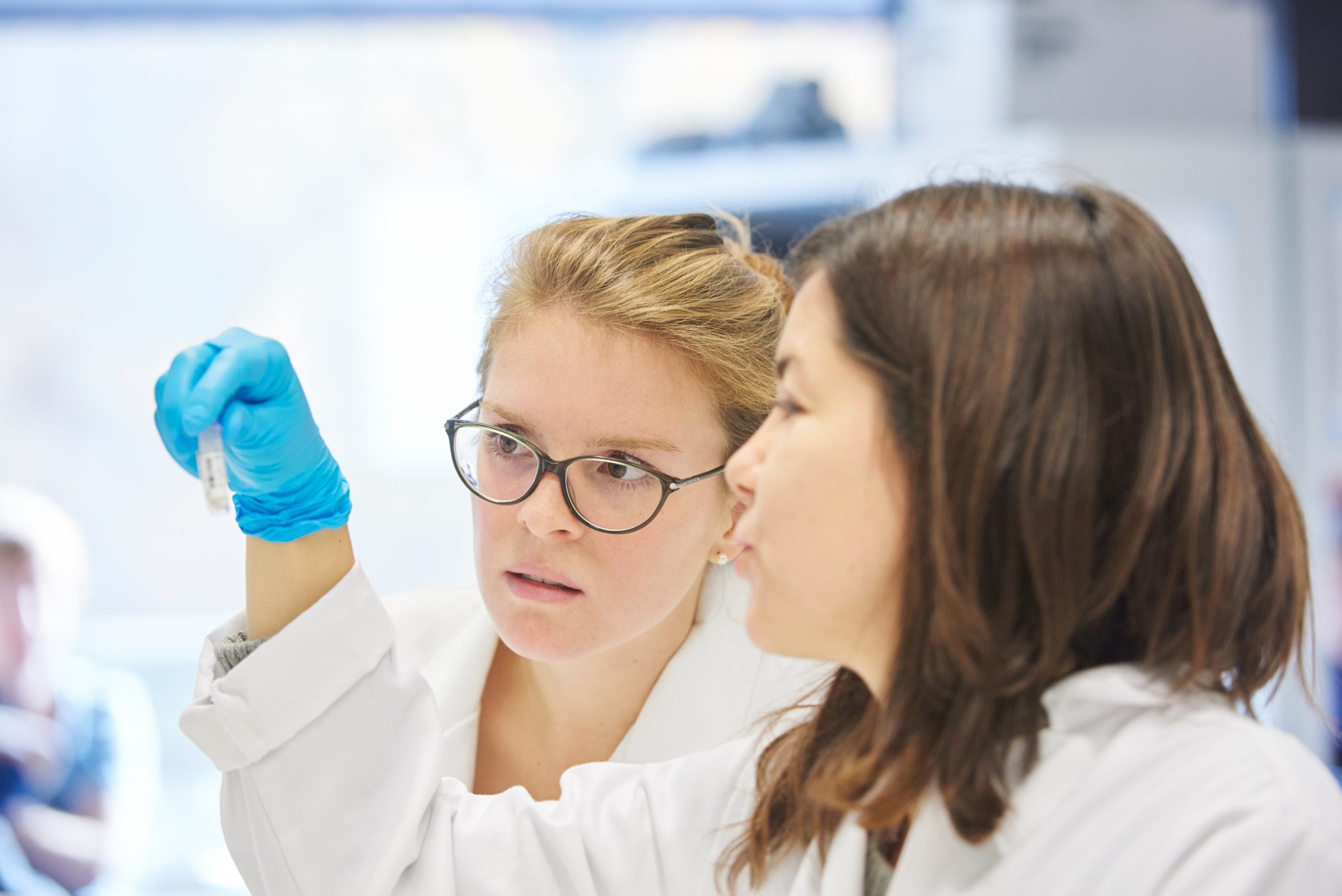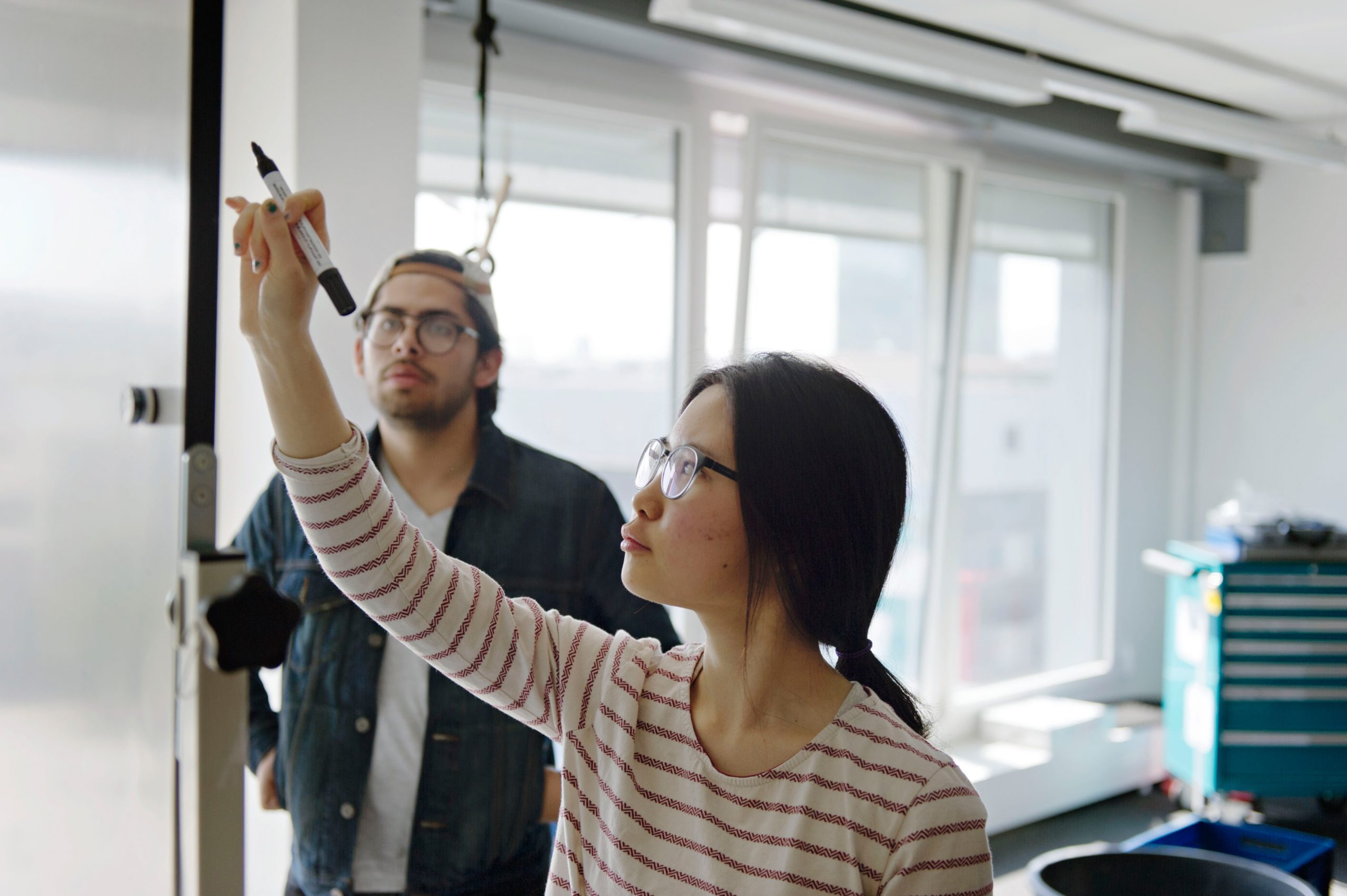In peer mentoring, a self-initiated group of peers has to be constituted before applying to the program. A group should consist of at least 15 peers. The group can either be composed of doctoral students and postdocs together, or exclusively of doctoral students, or exclusively of postdocs. All group members have to be a member of one of the six institutions of the ETH Domain during the time span of their mentoring group activities. The groups set a common goal (e.g. career development topic) on which they want to work. They should point out why they want to work on this specific topic. The peers take a proactive attitude and share their knowledge and experiences in the group. Two to five senior mentors assist the groups. The mentoring process will start in Summer 2023 and will last for one year.
What is peer-mentoring?
The key point in peer mentoring is the mutual support among the peers. They share their knowledge and experiences with each other. Senior mentors support the peers in pursuing a career in academia or industry and they also share their experiences with the peers. The peer groups need to identify in advance at least two persons who would be willing to act as seniors mentors.
Read goals & topics from Peer Mentoring groups from runs 2023/24, 2022/23 and 2021/22
Watch testimonials from 2 peer-mentoring participants
Application requirement and assessment criteria
Peer mentoring groups are open for women and men. The first and the second applicant of the group must be female scientists and the group must consist of a majority of female scientists.
After the group is constituted and the application requirement are fulfilled:
- find a common goal (e.g. career development topic) the group wants to work on
- find 2-5 senior mentors
- organise the activities: regular peer group meetings in order to exchange knowledge and experiences (at least once per month in some form); Meetings with senior mentors – set up a list of topics for workshops/seminars incl. names trainers who could held these workshops/seminars (see below)
the first and second applicants need to contact the FLP project coordinators for a preliminary discussion before the application submission. It should take place before the applicants contact the potential trainers.
The deadline was April, 29th 2023. Please fill in the online application form and upload a zip file containing the following documents:
- CVs of 1st and 2nd applicant (including CV and publication list)
- Budget
- CVs and letters of support from the senior mentors (combined in one file)
- Signature page
The assessment of the applications will be based on the quality and completeness of the application, the motivation and objectives of the group and the predicted positive impact of the mentoring for the career development of the peers.
A google sheet is at your disposal, you are looking for peers and want to propose a goal/topic. It’s a nice & easy way to network, share ideas and find the right Peer Mentoring group for your needs!
The groups will receive confirmation of their selection by mid-June 2022.
The already established peer groups of the three first runs (2018, 2019 and 2021) have the possibility to reapply. Prerequisite for a successful reapplication are the following:
- a new specific career development topic the peer group wants to focus on.
- at least one new applicant
- at least three new peers (a peer can participate to maximum 3 runs)
Commitment
Peers commit to regular participation and engagement in the mentoring meetings. They invest sufficient time in the mentoring project according to the planned activities (meetings, workshops/seminars with trainers).
At the end of the program, participants will receive
- an individual evaluation form
- a group evaluation (that should be answered by one of the applicants).
The group will also be asked to write a short statement (about 1/2 to 1 page long) about their experiences in the peer mentoring program. Please keep this in mind, especially towards the end of the program.
What kind of activities can groups organize?
The respective activities have to be related to the chosen career development topic of the peer group.
Examples:
- Regular peer group meetings in order to exchange knowledge and experiences (at least once per month in some form)
- Meetings with senior mentors
- Workshops or seminars with trainers (from academia or industry)
Financial resources
A maximum of CHF 5000.- is available for every peer mentoring group (for further expenses CHF 500.-).The group has to set up a budget for all planned activities in advance (budget form to download). Senior mentors from the ETH Domain cannot be remunerated, external senior mentors can receive max CHF 400 for half a day plus travel expenses. Expenses for trainers (fees, travel expenses) should be included in the budget.
Signature page
Signature page can be downloaded here.




